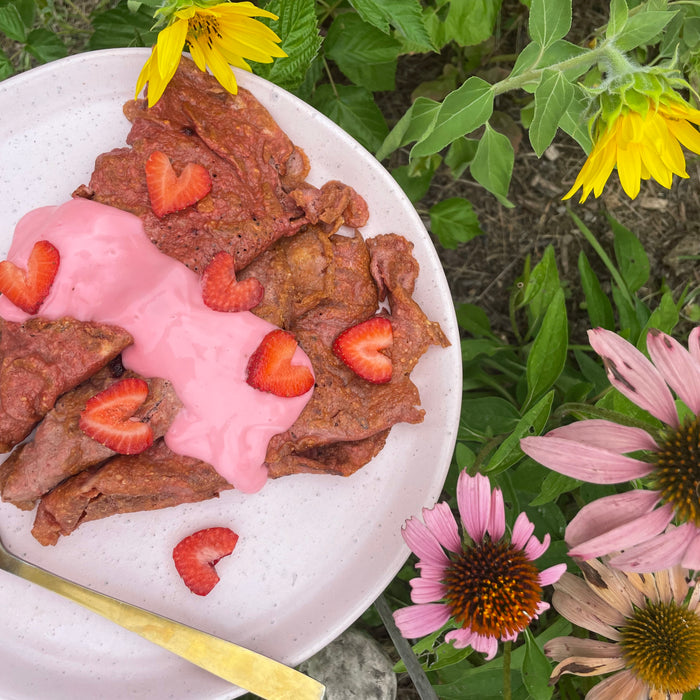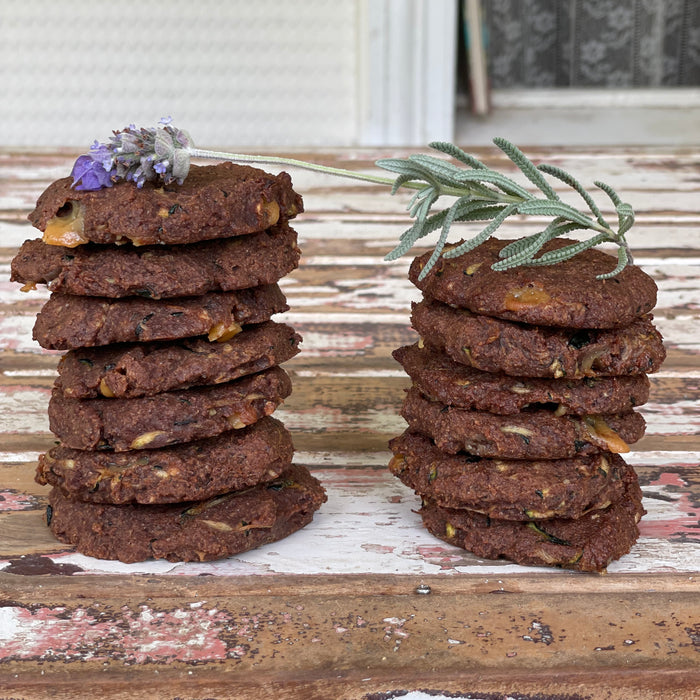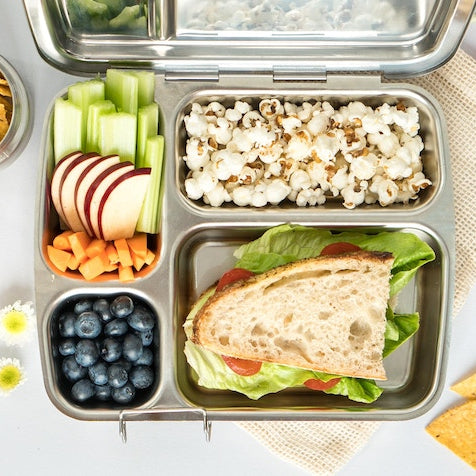We have collaborated with one of our Naturopaths, Jana to provide some helpful tips for improving digestive health during the Winter months.
If you are searching for ways to improve your digestion during Wintertime, then it is important to pay attention to proper nutrition. The dietary suggestions mentioned below are made from protein-rich and bioactive peptides that can reduce the effects of digestive disorders.
Winter Greens
Even though frost may be covering the ground in Winter and there may not be many greens growing overall - you should still seek out and consume edible greens in Winter.
Eating a variety of seasonal Winter greens is a great way to improve digestion. Dark and leafy greens are packed with fibre that help to bulk up your stool along with keeping you regular. Furthermore, eating fibre also makes you feel fuller for longer, so you won’t be as tempted to over-indulge at those holiday parties.
Greens are packed full of important vitamins and minerals such as iron, magnesium and vitamin c for a healthy immune system. With a variety of seasonal Winter greens available at Santos Organics, you can use them in several different ways such as in soups, wraps, broths and salads.
Herbs and Spices
Herbs and spices are well-known to improve digestion with their ability to increase enzyme production in the stomach. They are also helpful in boosting immune health, due to being rich in antioxidants. Herbs and spices can be easily added to tea and warm beverages such as soups, drinks and main meals such as meat and vegetables. When incorporated in meals, they are also helpful in reducing salt intake as they add flavour and taste to dishes. Some key herbs and spices to include in your diet include: cardamom, nutmeg, turmeric, ginger, cayenne, cinnamon, fennel, fenugreek, gentian, peppermint and cloves - which are all known to trigger and assist the digestive system, which naturally slows down during winter time (similar to how animals do too).
Many of these spice options are also available in herbal tea form. Otherwise, you can find them in a capsule form or seek one of our in-store Naturopaths that can make a herbal tincture up especially for you!
Omega-3
To maintain proper digestion, it is necessary to consume enough healthy fats. Fat helps you feel satisfied after eating and is often required for adequate nutrition.
Saying this, you should consume healthy fats over unhealthy options. There has been significant research conducted that found the consumption of Omega-3 fatty acids can reduce the risks of inflammatory bowel diseases such as ulcerative colitis, improve the cardiovascular system, help to balance hormones and adds a glow to your skin.
High omega-3 fatty acids include chia seeds, flaxseeds, legumes, nuts and fatty fish such as mackerel, sardines and salmon.
Ghee
If you’ve never heard of ghee, I will explain a bit about what it is. Ghee is clarified butter made from butterfat, milk solids and water (that stems originally from India). Ghee has not only been found to improve digestion, but it also boosts the immune system, which is helpful for the colder months when you're more likely to catch a cold or flu. It also promotes healthy gut bacteria (which is essentially how it helps to improve digestion). Ghee can be a substitute for refined oils to make dishes healthier and it also doesn’t burn whilst cooking with high temperatures.
Prebiotics
Prebiotics feed your gut microbes (so they grow happy and strong!). They are found in the form of fibre, so by eating more fibrous foods you will not only assist digestion, but will also be feeding the gut bacteria that helps you to break down food. Prebiotics not only help with digestion but they also create short chain fatty acids. Studies have shown that SCFA's help with obesity, diabetes and non-alcoholic fatty liver disease. Prebiotics are found in berries (strawberry, blueberry, raspberry), asparagus, onion, legumes, flaxseeds, almonds and inulin.
Probiotics
As mentioned, bacterial microbes in your gut are required to break down food in your small intestine and colon. If you have low levels of gut microbes, you can easily add some probiotics to your diet. This could be as easy as introducing yoghurt and fermented foods into your diet or taking a probiotic supplement. Remember that not all probiotics will assist with your digestion - they need to be strain specific to match your unique condition, hence it is recommended that you seek out the advice of your Naturopath for further advice.
Reduce Stress Levels
Stress can work in numerous ways in the body. It can stimulate the sympathetic nervous system and slow down the digestive process as you are in 'flight' mode of the stress response.
Stress can also stimulate the release of bile, which can feed the negative bacteria in your gut and cause an imbalance (dysbiosis). Knowing your stress triggers is beneficial - but also adopting mindful eating, using your breath and making time for you are essential. Of course, sometimes it's not so black and white. To find out if you have adequate digestive enzymes and short chain fatty acids, you can have a stool test done for further information.
Chew Your Food
How often have you worked during your lunch break or picked at food while in the kitchen preparing the main meal for the day (and not actually sitting down and taking rest while doing so)?
When you properly chew your food - not only are you helping your digestive system by making your food easier to digest, but you're also slowing down. Mindful eating has gained some attention in the last few years. This is where you take note (no, don't get your note pad out) and appreciate the food that you are eating by being aware of the smell, taste and texture. This process slows you down and will ensure that you aren't rushing.
Be Mindful of Meal Portions
Lastly, eating large amounts of food creates tension in the digestive system, which can cause poor digestion, constipation or diarrhoea. When you eat a series of small food portions, your body is more easily able to digest and use the nutrients in your food, preventing calories from being stored as fat. Be mindful also not to eat dinner late at night. It takes at least two or three hours to properly digest and short-term suffocation during sleep can negatively impact your digestion process. Improve digestion by avoiding eating overnight and try not to go to sleep immediately after eating.
Fluid Intake
Did you notice that fluid intake suddenly decreases with a decreasing temperature? This may not be the best idea for your digestion. If you don’t drink enough water or fluids, your intestines may stiffen and make food more difficult to pass. For smooth defecation and waste disposal, it is essential to always provide moisture i.e. fluids. Drink more water throughout the day and warm water is even better. Consume stews and soups to increase your fluid intake. Water-based vegetables such as radishes and tomatoes are also beneficial.
Special thanks to Jana @thesecret_kitchen for this article.






